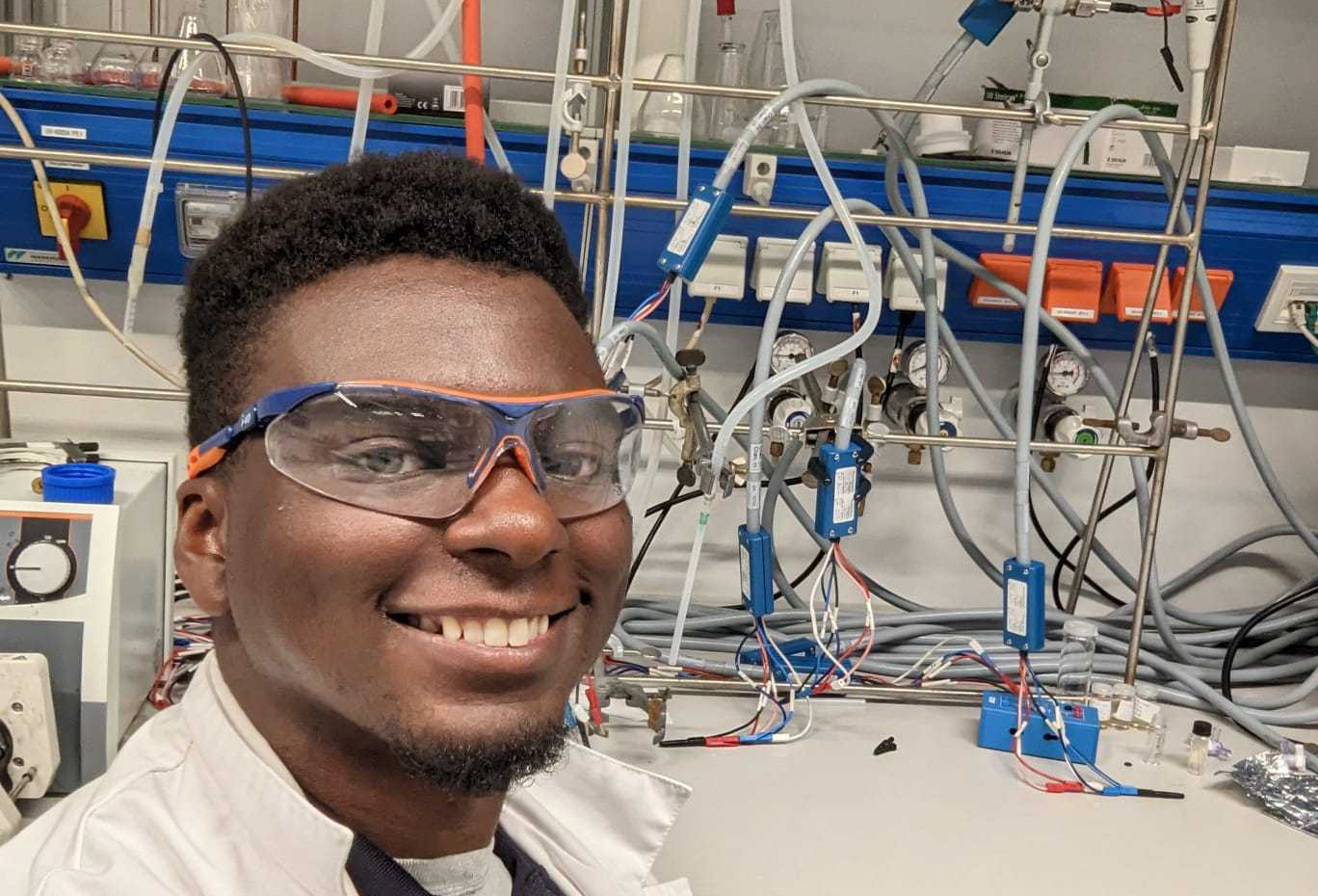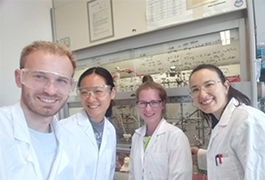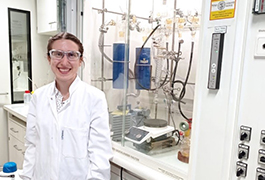Sun, Sand, and… Textbooks? Using the Summer to Jump Ahead in Your Studies

Summer jobs and internships yield lots of exciting professional rewards, though staying a student for the summer has its own rewards. There are as many reasons to take summer courses as there are classes to choose from. Here’s what to consider to get a leg up on your studies.
Figure out what it is you want to accomplish this summer
Do you need to catch up on credit hours? Are you trying to make more room in your schedule for research or other activities? Do you need a course to stay on path for your major? Are you interested in doing something educational during summer vacation because you have the energy and time?
Taking the time to determine why you want to take summer courses will help you figure out which courses make sense for you. Make sure you share your ideas with an advisor and get their insights too. With a little reflection and discussion, you will likely discover lots of great ways to keep up as a student in the summer.
Sometimes chemistry courses aren’t the best choice
Many students who want to get ahead (or catch up) in their majors immediately look for intensive year-in-a-summer chemistry courses. This isn’t always the best idea for majors. Taking a full year of general or organic chemistry in 10 to 12 short weeks may seem like a logical way to leap to the next level, but it could rob you of the opportunity to fully process concepts, apply what you learn, reflect, and grow.
You will have a much better chance of learning everything you can in the laboratory, for example, when you have enough time to really absorb the material when you have enough time to really learn and internalize techniques. Consider learning electron configurations in class or chromatography techniques in lab. Would you rather have a couple of crunched days to figure out electron configurations or chromatography techniques or several weeks to fully understand what you are doing?
Rather than feeling ahead of their peer group, many majors who take these summer courses end up feeling behind it because their friends learned details and had experiences that they didn’t.
Summer intensive sequences are often aimed at non-majors. Although they are good courses, they aren’t meant to fill the needs of someone intending to pursue a career in chemistry. In addition, many professional schools (medical school, some pharmacy schools) prefer that students not take required courses during intensive summer sessions.
Try something new
Just because you aren’t taking chemistry courses in the summer doesn’t mean that you can’t get ahead. The summer could be a good time to take advantage of core requirements outside of your major. Most schools have general education requirements in other fields to give you primary skill sets and other points of view. It may not be a bad idea to complete a core requirement to give you a little breathing room during the academic year so you can focus more on courses in your major, start a research project, or just lighten your academic load.
The summer is also perfect for finishing a requirement that might be a little intimidating, potentially time-consuming, or even simply crazy and fun. You can take that drawing course you’ve been eyeing or immerse yourself in a new language while also knocking out a humanities requirement. Or you could work through a writing intensive course to develop communication skills that will help you shine in years to come.
Consider chemistry-adjacent electives
Although that year-in-a-summer organic chemistry course might not be the best fit for you, you can still take a chemistry or chemistry-related course. Many schools offer creative summer courses that are either chemistry electives or chemistry-related continuing education courses. The credits from such courses don’t always count toward your major (something to ask your advisor about), but they usually will count toward your overall credit hours.
Special topics courses like Chemistry of Cooking might be a perfect fit for your summer months. Check out departments (not just chemistry) for chemistry-related courses. Geology, biology, and even physics departments often have chemistry-heavy courses in environmental science, metallurgy, biotechnology, forensic sciences, and more. If you are taking these courses at another institution, always check with your school to see if these courses would transfer as upper-level electives or, at least, as credits toward graduation.
And if you are feeling really creative, don’t shy away from looking at places such as art museums that offer chemistry-adjacent courses. There is a lot of chemistry in art! The chemistry of glass, the chemistry of art restoration, or even a jewelry or metalworking class will have a significant amount of applied chemistry.
Read the fine print
If you will be taking summer courses at an institution near your home rather than your college or university, it is critical for you to know the credit transfer rules.
Many schools have transfer agreements, which makes life easier. And even if there isn’t a formal agreement, credit can be transferred if you have documentation (e.g., a syllabus). Regardless, there will always be forms to fill out and sign, and there are always additional rules for transfer credits, such as the minimum acceptable grade for a course, which varies from school to school.
Communicate with your academic advisor and the registrar (or whichever office deals with credit transfers at your institution) to be sure you do all the right things before you spend money and time on a course.
Reasons to study on your own
Rising juniors and seniors should consider spending time during the summer studying for the standardized exams that they will soon be facing (GREs, Chemistry GREs, PCATs, etc.). Some students benefit from standardized test courses or workshops; however, many other students do equally well working through a review book or two. Start out by picking a review book that works best with your learning style. Your school’s career services office or library most likely has a good selection of products. The key is to discipline yourself to study as if you’re in an instructor-led class with homework assignments and assessments. Set aside a bit of time each day to work through a section, and set up fixed days to take practice tests.
It might seem like a paradox, but another good way to learn is to work as a tutor or a teaching assistant. If your local school is hiring tutors for summer general or organic chemistry courses, think about applying. You’ll have a valuable opportunity to review lots of useful chemistry while getting paid.
Community colleges sometimes have continuing education courses that need tutors, and high schools need tutors for summer school programs. Libraries also seek college students to help with summer programs or to serve as math tutors for adult learners looking to earn their GEDs. It is a great way to help out the community while simultaneously refining your academic and instructional skills.
Seriously consider using the summer to catch up, try new things, and prepare for next semester. With a little planning and flexibility, you’ll start the fall with more than just a tan!





